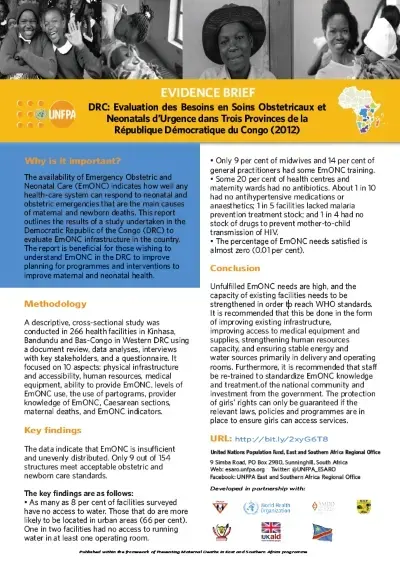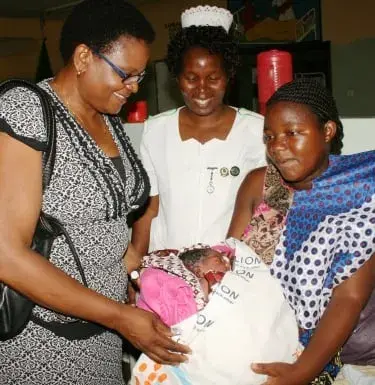The availability of Emergency Obstetric and Neonatal Care (EmONC) indicates how well any health-care system can respond to neonatal and obstetric emergencies that are the main causes of maternal and newborn deaths. This report outlines the results of a study undertaken in the Democratic Republic of the Congo (DRC) to evaluate EmONC infrastructure in the country.
The report is beneficial for those wishing to understand EmONC in the DRC to improve planning for programmes and interventions to improve maternal and neonatal health.
The data indicate that EmONC is insufficient and unevenly distributed. Only 9 out of 154 structures meet acceptable obstetric and newborn care standards. One of the key findings is that only 9 per cent of midwives and 14 per cent of general practitioners had some EmONC training.




